How will young people, secondary school students or pupils in the upper primary school years cope in the role of city councillors? What topics are they interested in in cities? What are their concerns? And how would they propose to solve them themselves? We learned all this in the framework of the project “Students in the regions discussing with councillors”. And more importantly, local councillors in several towns learned about it as well, meeting with students as part of the project.
Students in the regions discuss with representatives
The project, co-funded by the Erasmus+ programme of the European Union, was implemented from August 2019 to July 2022 and involved more than 540 young people aged 13-19 from secondary and primary schools in several regions of the Czech Republic. 16 people aged 18-30 took part in the project as trainers. The last group involved in the project were decision-makers, with more than 55 participants.
Project objectives:
– To develop the knowledge and skills of secondary and upper primary school students in the practical functioning of politics at the local level.
– To develop young people’s ability to express and discuss their opinions in a cultured way and how to obtain information about a real situation or problem in the community.
– To facilitate a dialogue between decision makers in the target cities and the students so that the councillors can find out information about the perspective of young citizens of the city on real situations or problems in their area
Activities implemented:
The young participants developed their knowledge, skills and attitudes in a two-day programme as follows:
On the first day of the programme, the participants were introduced to the project, an initial evaluation was carried out, an activity with a discussion about the relationship to democracy and the role of the individual in a democratic society was held, the participants were introduced through several activities to information about the functioning of institutions in municipal politics and the possibilities of citizen participation, they were also given the basics of sociological research methods, a discussion about specific situations and problems in their city was held and they had the opportunity to evaluate the programme so far, or to discuss the results of the programme. The participants were able to evaluate the programme, evaluate the programme and have an opportunity to influence the shape of the future day by means of an evaluation. In addition, the students attended an actual city council meeting or watched it from a recording if the meeting was not held at a convenient time.
On the second day, the programme took place in the city hall or other suitable representative premises. After an initial reflection on the previous day’s City Council meeting, the participants divided into four or more fictitious political parties, which chose issues or topics relevant to their city according to their own preferences. Each time, they developed one idea into a detailed draft resolution, while another was prepared as an interpellation to the city leadership. The groups, with the support of tutors and city representatives, discussed the issues in detail and prepared their own strategies to address them. Each party was then given the opportunity to learn about the other parties’ upcoming proposals so that they could plan their own position and questions for their colleagues. In the final part of the program, a simulated council meeting, students were in the role of representatives. They presented their proposals, discussed and voted on them, then presented their interpellations to the city representatives present. This session was chaired by one of the city representatives. At the end of the program, time was devoted to reflection.
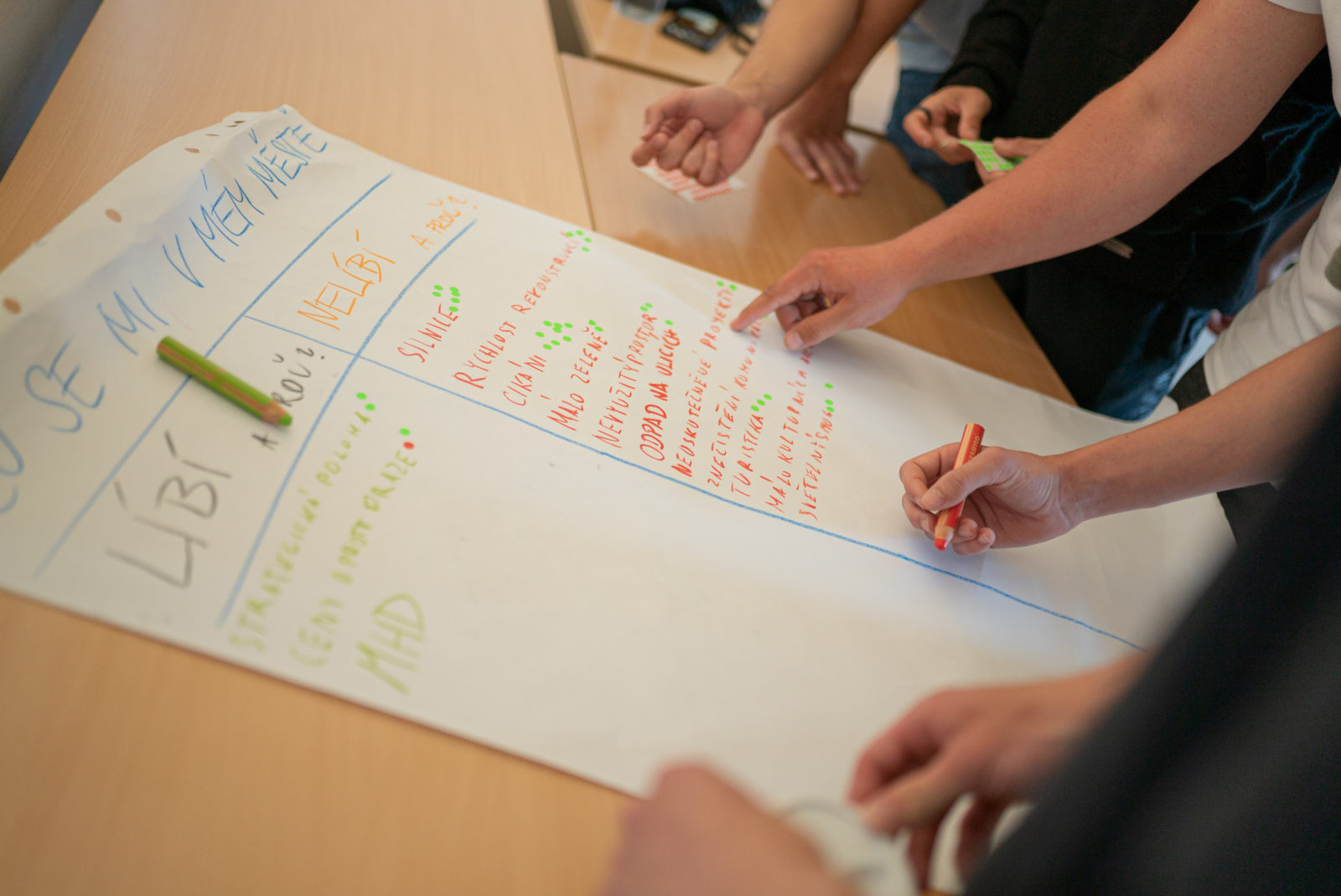
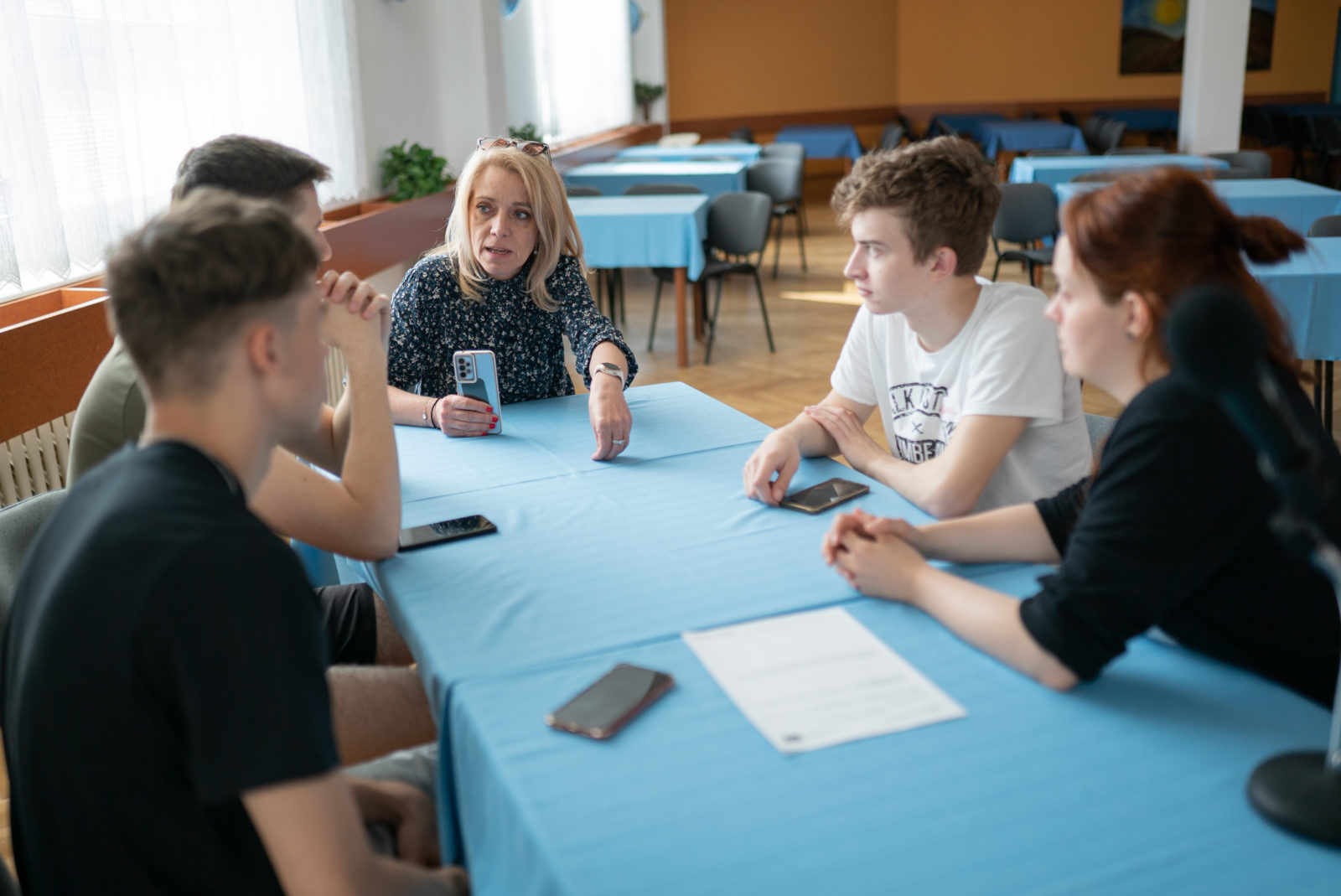
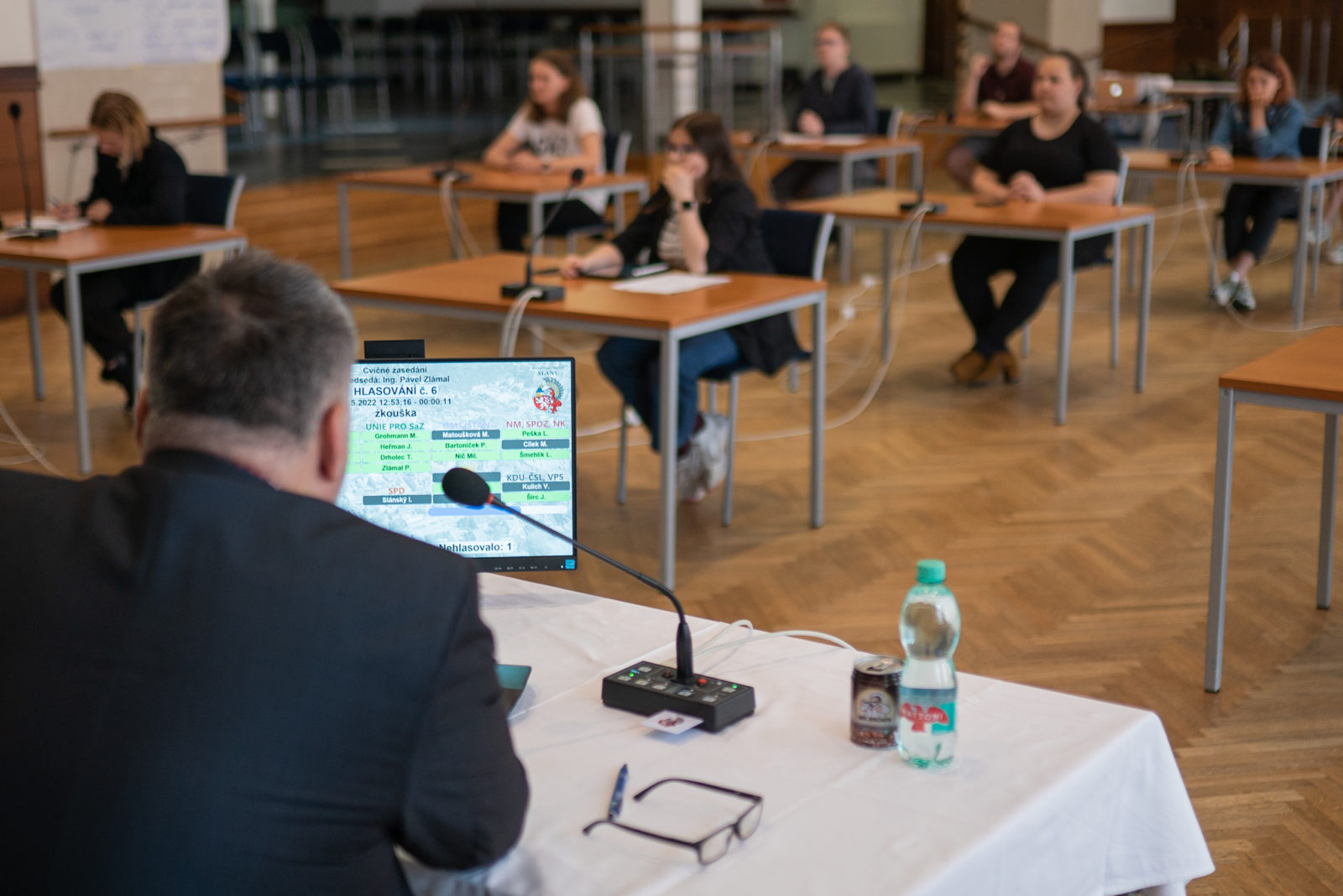
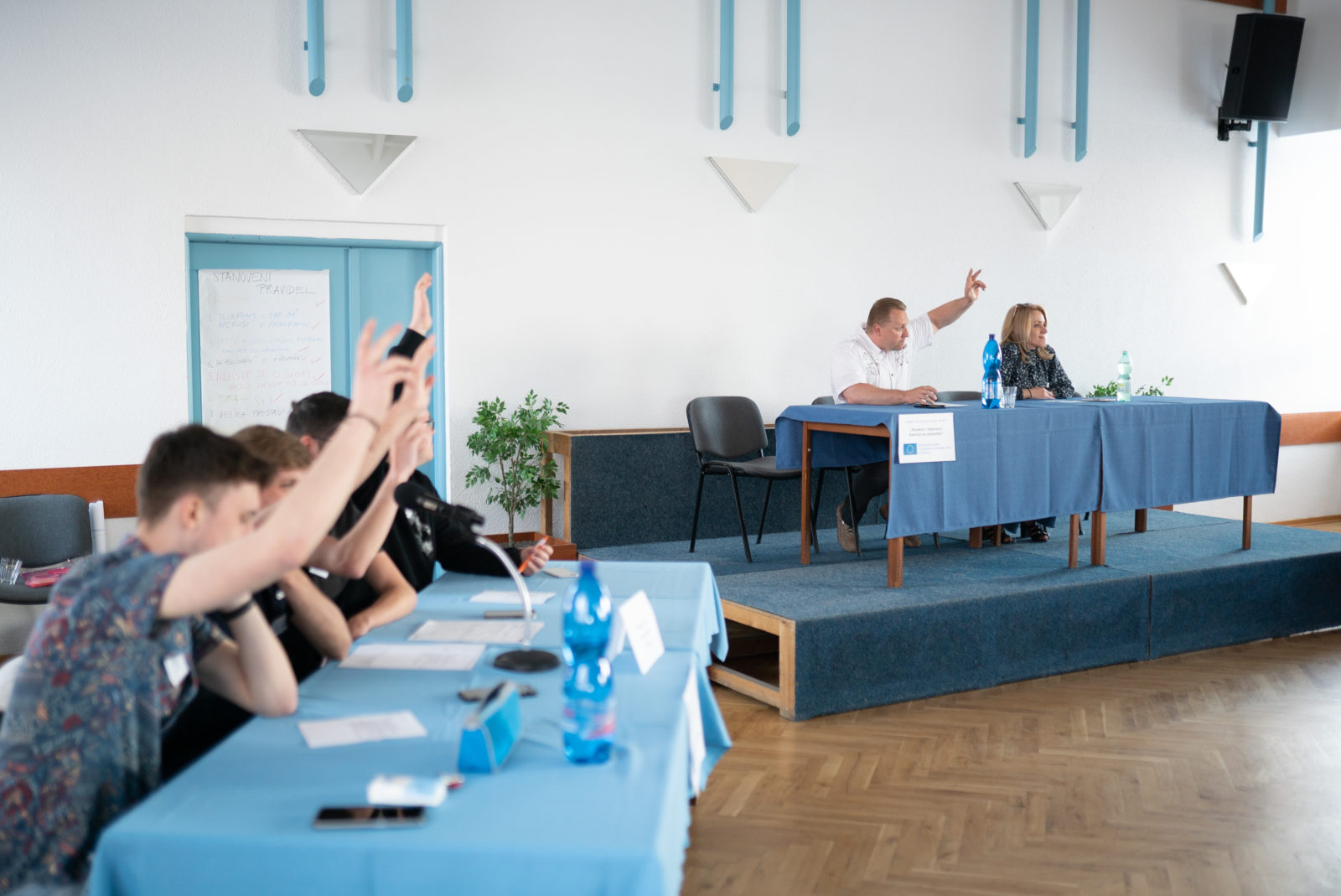

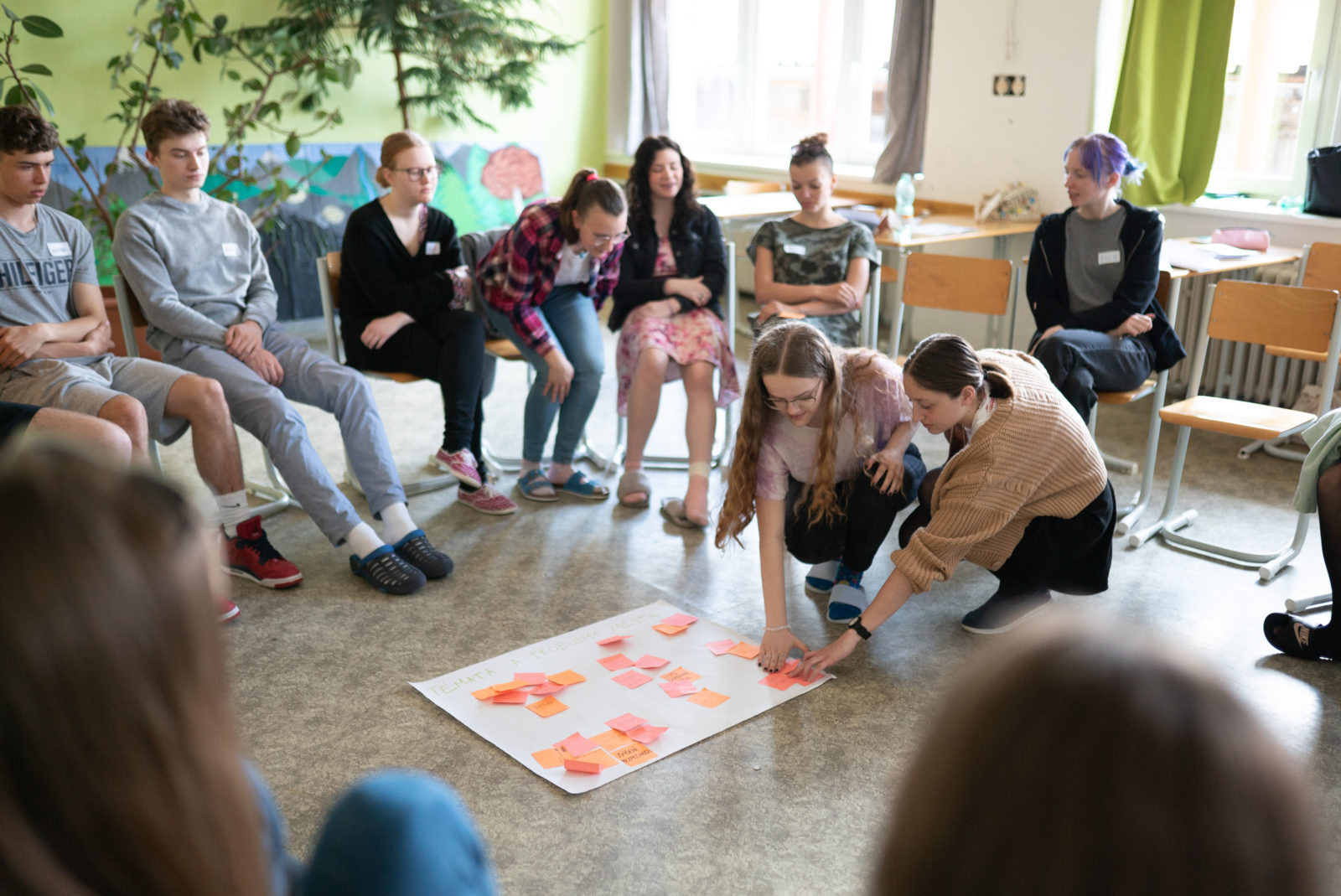
Project outputs:
The project produced methodological and educational materials that can be used by teachers or other educators. These materials are available here.
You can read about the main themes and issues that interested young people in the project in the final press release available here. More detailed information on the outcomes of each programme is available in the summary document here.
They have written about the project and the programme: Secondary School in Čáslav, Media in Čáslav, Žatec Gymnasium, Ústí nad Labem Region, Litoměřice Gymnasium, Frýdek-Místek Media, Sedlčany Gymnasium and Business Academy, SPŠ and OA Kladno, city of Ústí nad Orlicí, SŠ of business Vysoké Mýto, gymnasium Vrchlabí, primary school Demlova Jihlava.
In case you are interested in the programme and would like Agora CE to implement it for young people in your town or school, check out the offer and contacts on the page dedicated to the Student Simulated Council programme.
Implemented student councils:
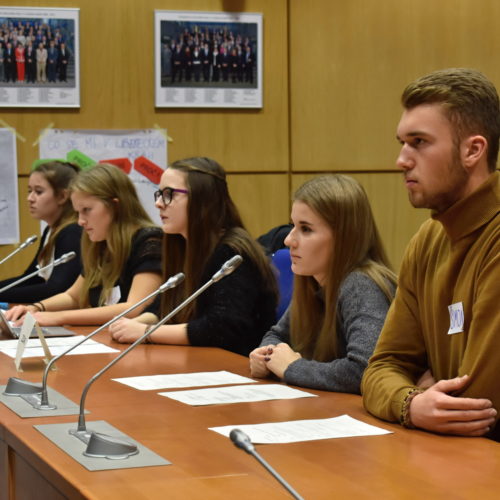
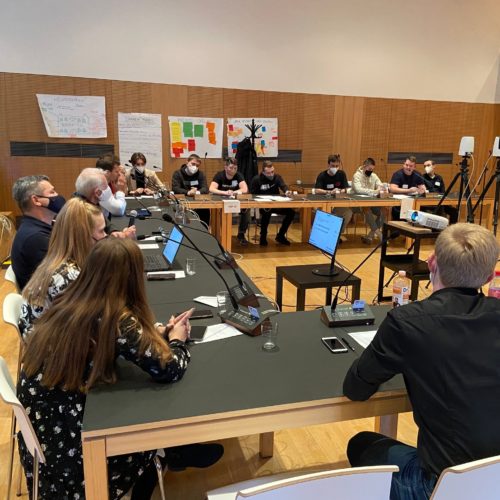
Students in the city lack, for example, a place where they could meet, study, have fun, create something, get inspired or just wait for a bus to where they live. However, representatives of the local government indicated that they are already thinking about some variant of such a community center. Some would appreciate a multi-purpose sports hall. With this idea, the students had the opportunity to see how expensive and actually tricky a plan it can be from the point of view of spatial planning. There were many ideas and thoughts. The representatives of Čáslav themselves admitted that they missed such a dialogue with young citizens and want to continue it in the future.
The event took place as part of the project Students in the regions discuss with representatives, which is co-financed by the European Union's Erasmus+ program.
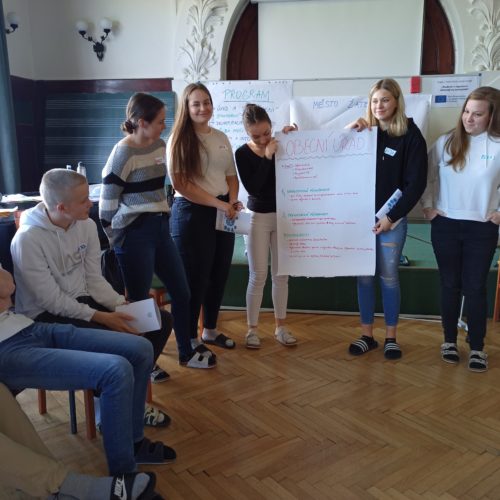
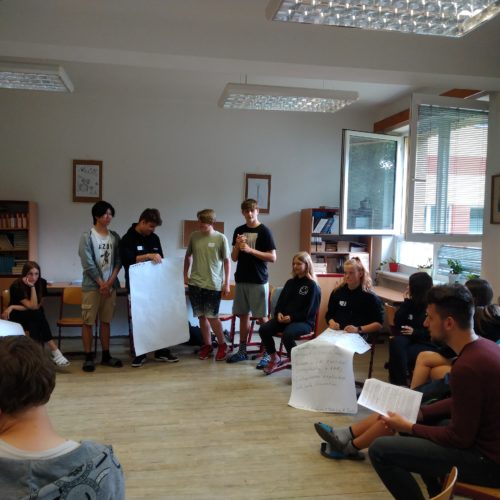
911 / 5 000
In Bakov nad Jizerou, a program was held on June 6-7 for two classes of the local elementary school. On the first day, two lecturers worked with each class individually, and the students worked individually in small groups on their own proposals for improving the city. Mayor Radim Šimáně and other representatives gradually cooperated with both groups of students, and in the final part of the program, the mayor chaired a simulated meeting at which both groups of students met for a joint meeting. The meeting focused on the following topics: increasing support for sports club activities in Sokolovna, reconstruction of the cinema in Bakov nad Jizerou, implementation of a playground with an artificial surface in the area of the Bakov football field, reconstruction of the "tree planting" event, organization of a Streetfood/music festival, and increasing support for cultural events in Bakov nad Jizerou.
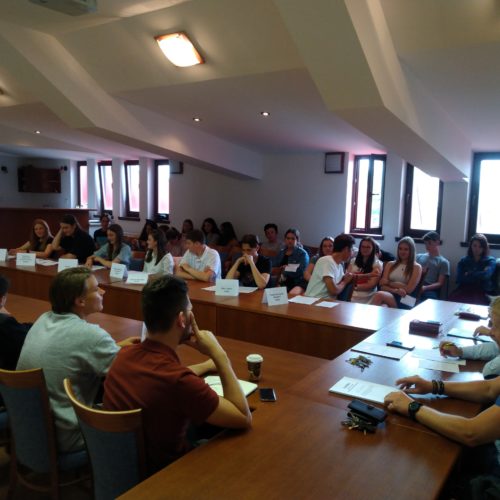
824 / 5 000
In Bakov nad Jizerou, a program was held on June 6-7 for two classes of the local elementary school. On the first day, two lecturers worked with each class individually, and the students worked individually in small groups on their own proposals for improving the city. Mayor Radim Šimáně and other representatives gradually cooperated with both groups of students, and in the final part of the program, the mayor chaired a simulated meeting at which both groups of students met for a joint meeting. The meeting focused on the following topics: increasing support for sports club activities in Sokolovna, reconstruction of the cinema in Bakov nad Jizerou, implementation of a playground with an artificial surface in the area of the Bakov football field, reconstruction of the "tree planting" event, organization of a Streetfood/music festival, and increasing support for cultural events in Bakov nad Jizerou.
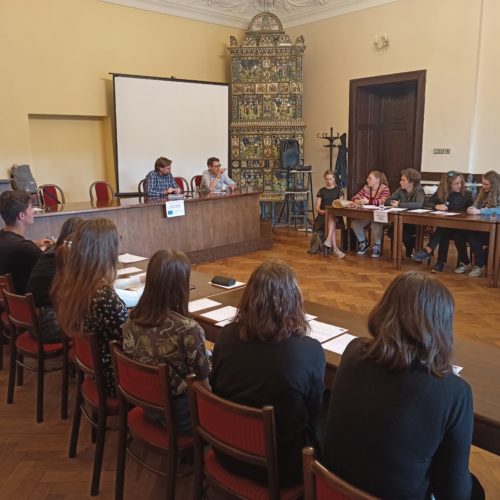
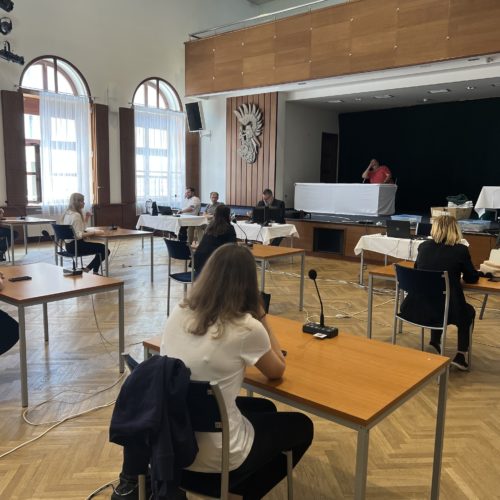
487 / 5 000
The simulation took place in Slaný for students of the local grammar school. Again on the second day of the program, the students met with four city representatives, with whom they discussed the following topics: Revitalization of public space in the city, modification of bus stops in the city, frequency of intercity bus transport, measures to reduce crime in problem urban areas. Their simulated council was then chaired by Deputy Mayor Radek Vondráček in the hall of the MC Grand cultural facility.
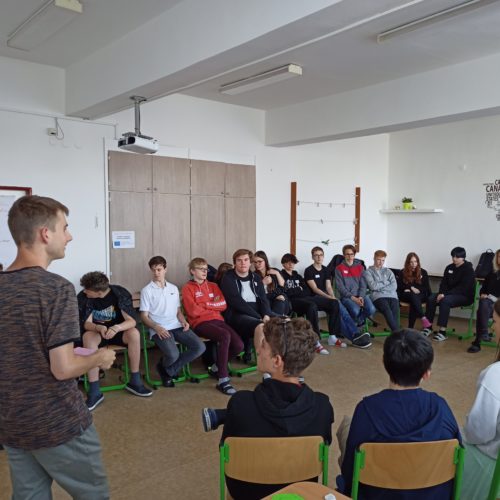
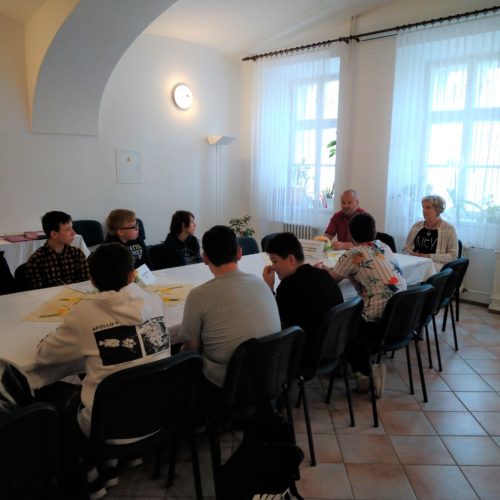
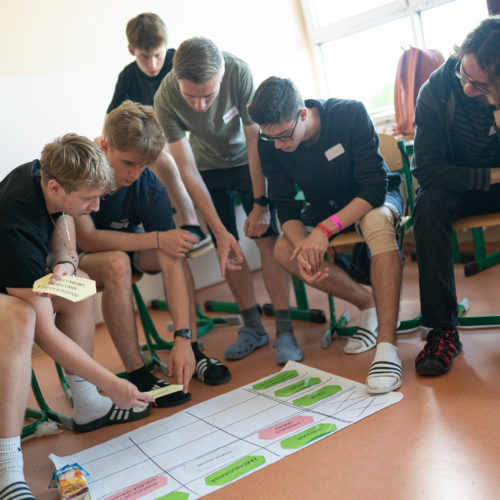
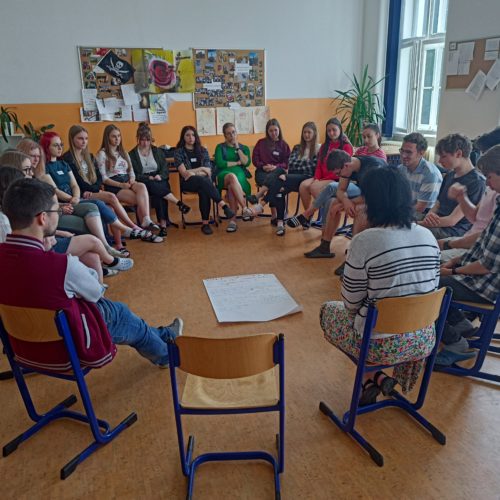
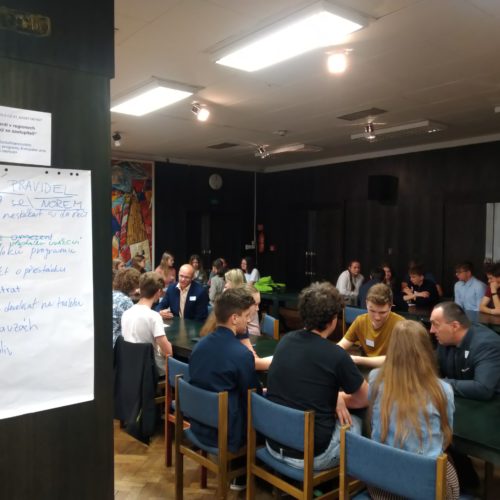
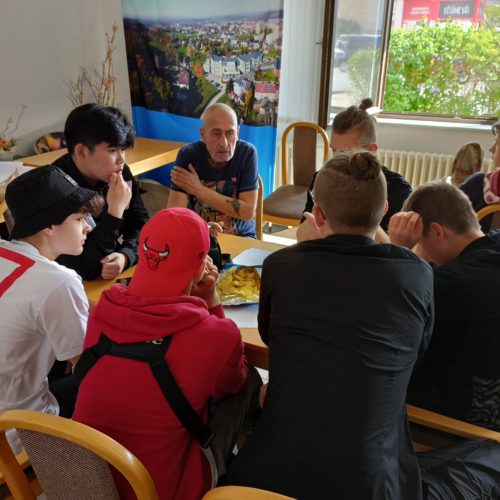
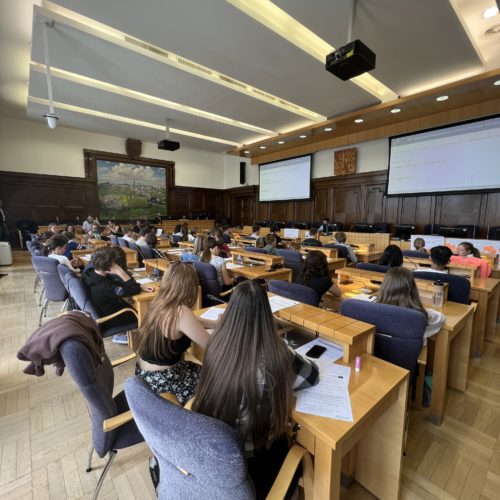
408 / 5 000
The simulated council program in Frýdek-Místek was attended by students from three local elementary schools – Scio School, Jan Čapek Elementary School and Pionýrů Elementary School. Topics that the students in the city identified as important were, for example: transport, sports, environment, reconstruction, ecology in the city, few benches, homeless people. Young people from Frýdek-Místek discussed their ideas with city representatives Mrs. Ubíková and Mr. Jelínek.
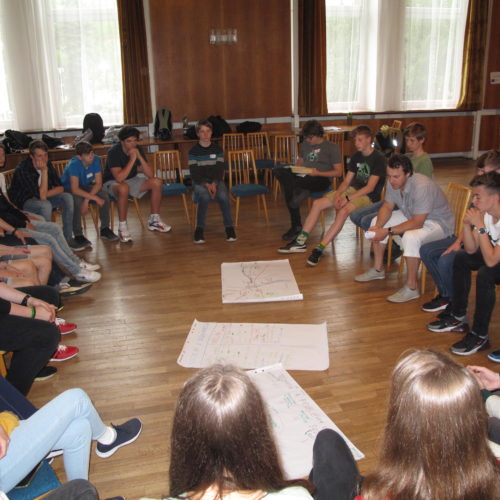
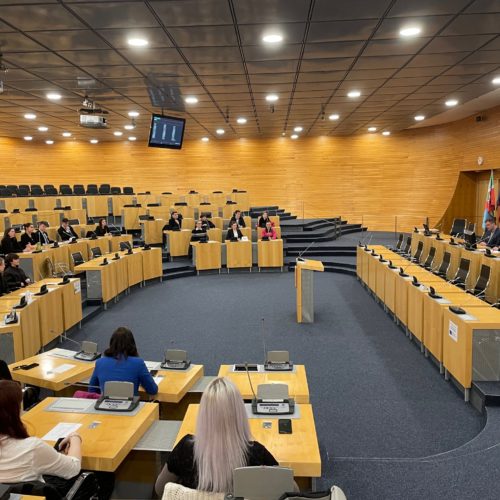
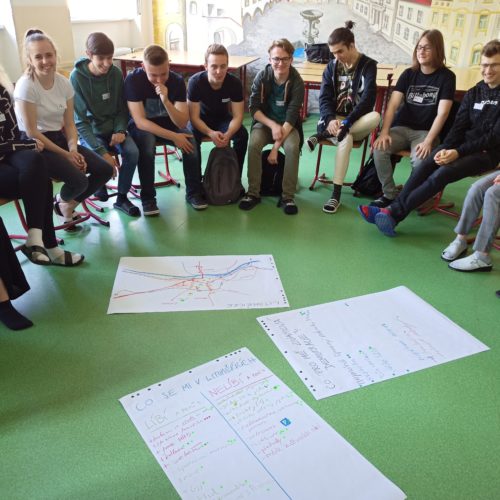
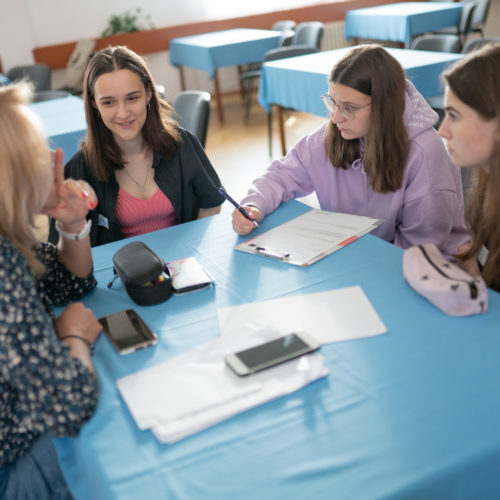
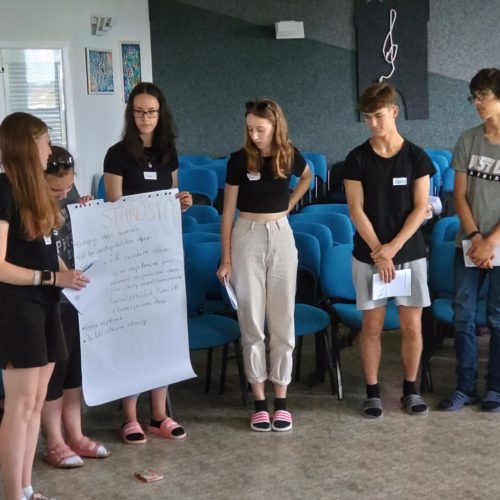
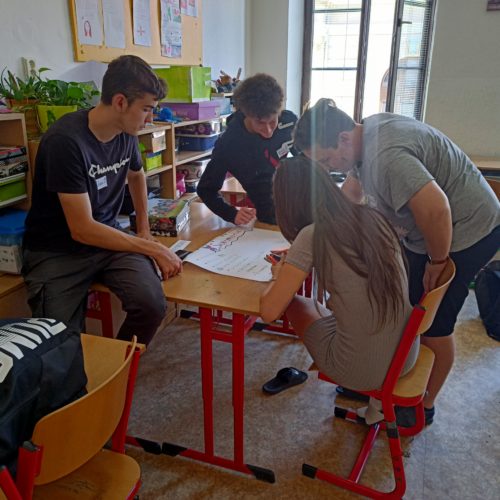
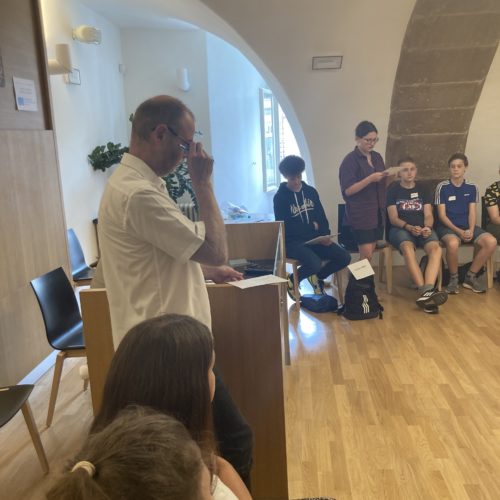
Are you interested in our work?
For more information, please contact magda.podsednikova@agorace.cz
email: monika.durajova@agorace.cz

